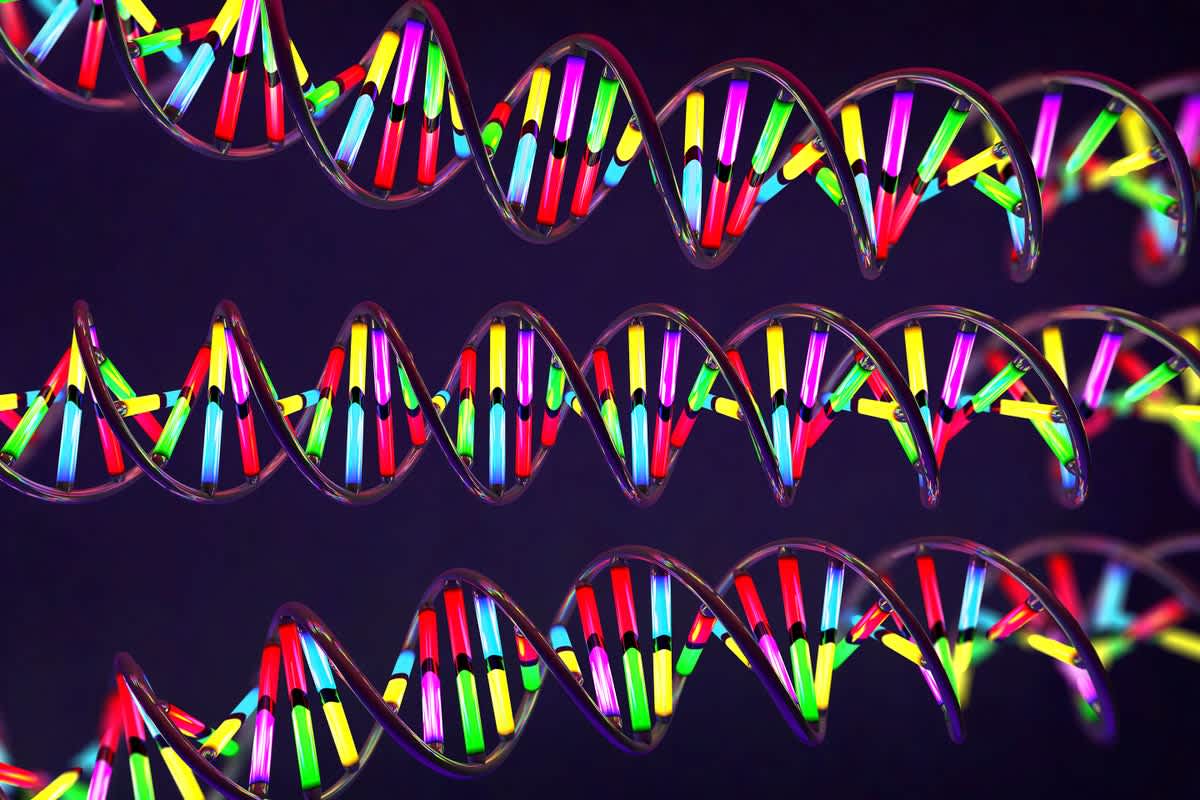Genetic Testing Is a Gift. But It Shouldn’t be a Present
Think twice before giving direct-to-consumer genetic testing kits to friends and loved ones
When the results came in, she opened them eagerly and was immediately confronted, not with information about her heritage, but with an offer: for a few extra dollars, she could unlock access to her health traits in addition to the ancestral data she had signed up for. Was she more or less sensitive to caffeine than the general population? Was she likely to be a deep or light sleeper? Was the bloating she felt every time she ate ice cream “all in her head” (as one of her doctors had suggested) or might her lactose intolerance be genetically verified? Without much hesitation, she decided to purchase the add-on.
That was how she found out that she carries two copies of the APOE4 mutation which, according to recent estimates, means her chance of developing Alzheimer’s disease may be close to 100 percent.
If you’re enjoying this article, consider supporting our award-winning journalism by subscribing. By purchasing a subscription you are helping to ensure the future of impactful stories about the discoveries and ideas shaping our world today.
Once she recovered from her initial shock, Pandora took this news in stride. She met with her primary care provider, who instructed her to focus on preventative strategies: diet and exercise. She ate more vegetables and exercised at least five times each week. Overall, she felt grateful for the knowledge of her genetic status, which gave her a sense of power and agency over her fate.
All’s well that ends well, right?
Not exactly.
The genetic testing had revealed that one of Pandora’s younger brothers also carried two copies of the APOE4 gene. And he took the news quite differently. In the weeks that followed the revelation of their heightened risk for Alzheimer’s, Pandora’s brother spiraled into depression and despondency. Where Pandora saw opportunity—a call to arms, even—her brother saw only doom.
For those who can navigate its complexities and understand its limitations (this may require advanced degrees in and, possibly, contract law), direct-to-consumer genetic testing may offer interesting and—sometimes—useful information. But making the decision to reveal our genes, through any method, requires that we reflect, deeply, on how we are likely to deal with uncertainty, the weight of foreknowledge and, potentially, bad news. And this deeply personal choice should never be made on someone else’s behalf. Genetic testing kits may play an important role in our ever-more-personalized health care, but they shouldn’t show up under Christmas trees, next to menorahs, or surrounding mkekas, with bows on top.
The compulsion to scrutinize every rung of our genetic ladders tracks with other trends in health and wellness, from gut microbiome analysis and continuous glucose monitoring (in people without diabetes), to whole-body MRI scanning. Since James Watson and Francis Crick unveiled the structure of the double helix over 70 years ago, our understanding of the science behind inheritance has expanded exponentially, paving the way for groundbreaking treatments and, in some cases, the ability to intervene years before an illness has the opportunity to take hold. But genetic testing has also infused a wide range of challenging ethical and philosophical questions—around data privacy, the nature of identity, the potential for discrimination and the risks of misinterpretation, to name a few—into the practice of modern medicine.
If these questions have made some consumers wary of sending their spit off to corporate entities, market research hasn’t captured their reticence. By 2019 more than 26 million people worldwide had already participated in direct-to-consumer DNA analysis (full disclosure: I am one of them, but I did not receive my kit as a gift). In 2023 the global value of the industry was estimated at $17.7 billion, and growing.
Over the past decade, stories of unearthed family secrets—hidden siblings, covert love affairs and confidential adoptions, to name just a few—have garnered widespread attention as the most fabled, unintended consequences of commercial genetic testing. But for high-risk carriers, revelations of genetic disease predispositions can be no less dramatic.
If being deeply influenced by a glimpse into the future strikes you as strange, it shouldn’t. Many of us are, after all, creatures shaped by what we believe may befall us. Knowing, or thinking we know, what lies ahead can become an invisible architect of our present lives, altering how we perceive ourselves and our place in the world. The ancient Greeks understood this, as did Shakespeare; Oedipus and Macbeth, for example, were undone by the force of prophecies.
If you’re still considering giving the gift of genetic insight this holiday season, I urge you to proceed thoughtfully. Have open conversations with your loved ones about the potential implications and risks, and encourage them to consult a genetic counselor before making any decisions. When it comes to unlocking the secrets of our DNA, the greatest gift isn’t a test tube waiting to be filled, but the freedom and space to choose when—and if—to explore those secrets at all.
This is an opinion and analysis article, and the views expressed by the author or authors are not necessarily those of Scientific American.
Source: www.scientificamerican.com
